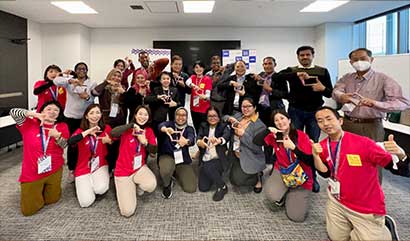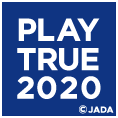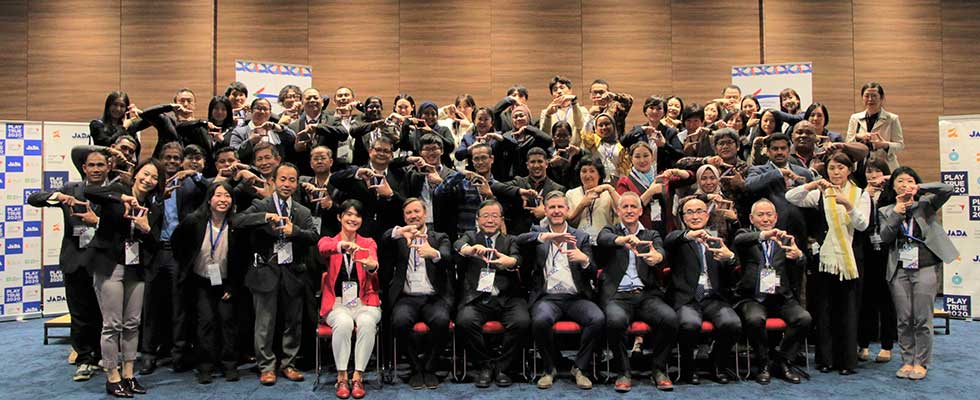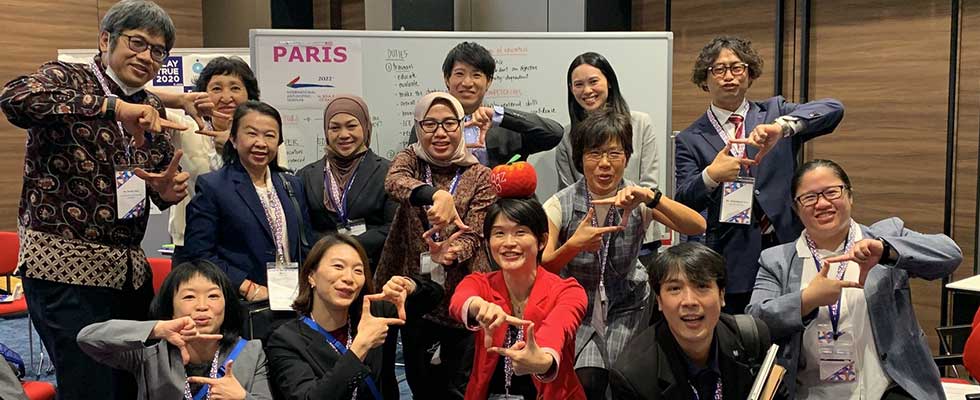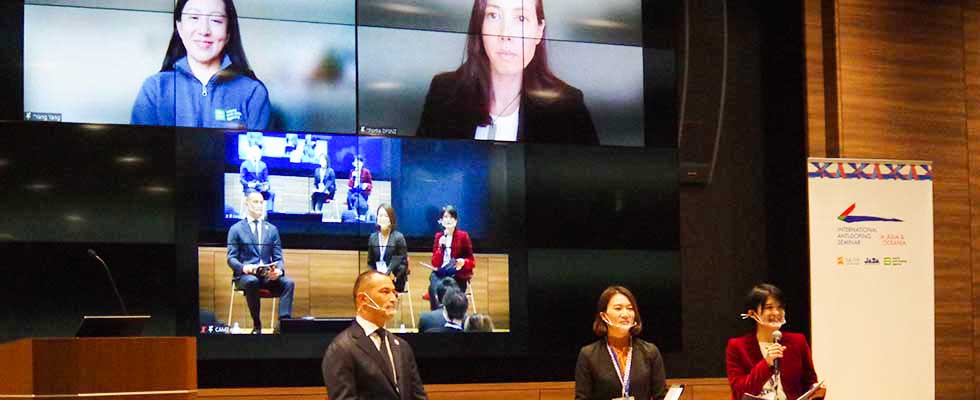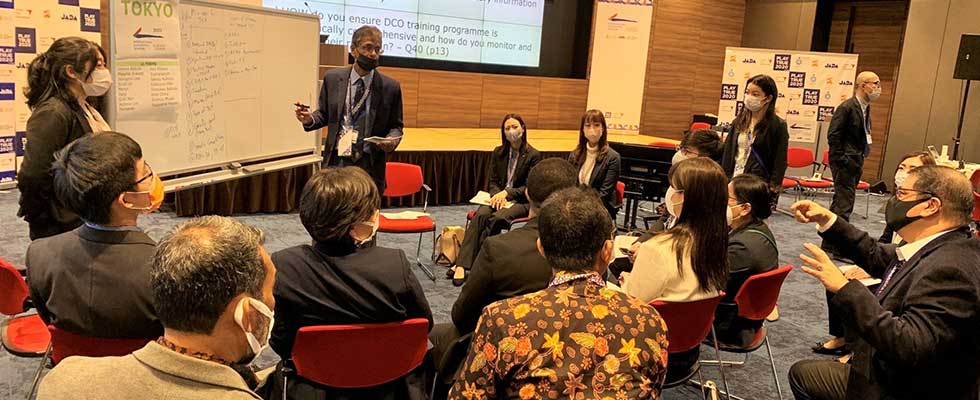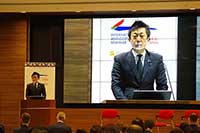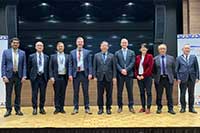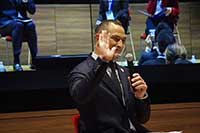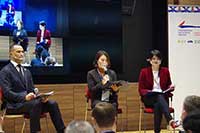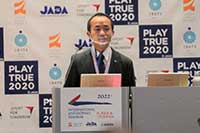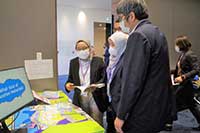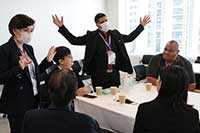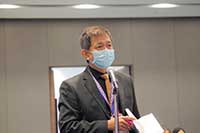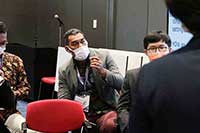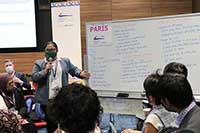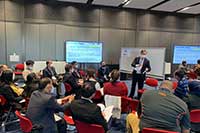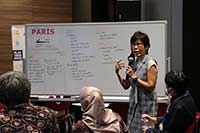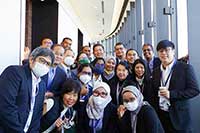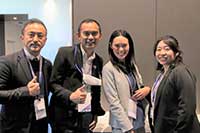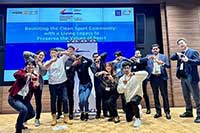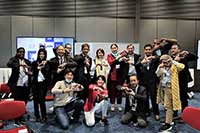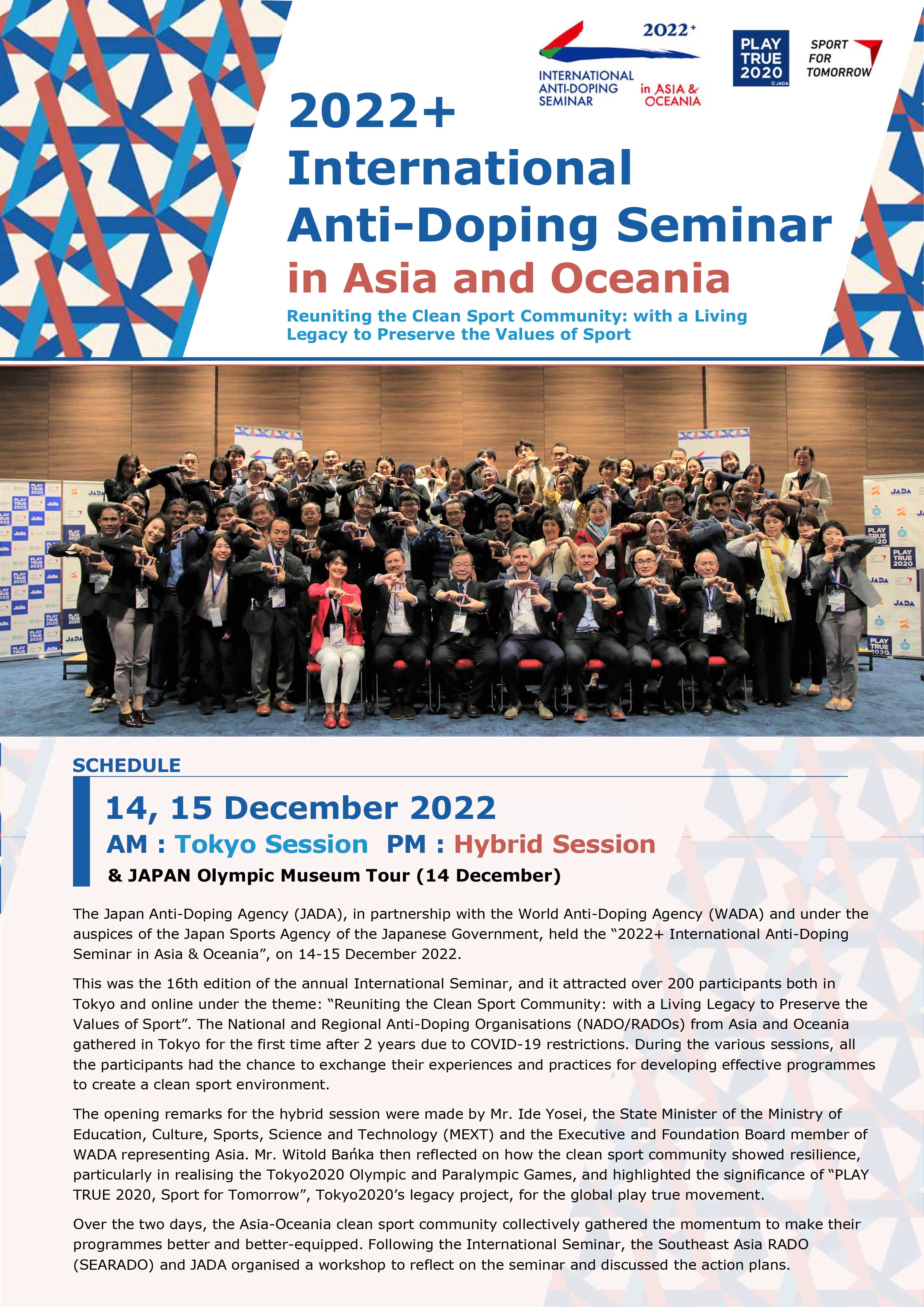International Anti-Doping Seminar in Asia and Oceania
Organised by

The Japan Anti-Doping Agency (JADA), in partnership with the World Anti-Doping Agency (WADA) and under the
auspices of the Japan Sports Agency of the Japanese Government, held the “2022+ International Anti-Doping
Seminar in Asia & Oceania”, on 14-15 December 2022.
This was the 16th edition of the annual international seminar, and it attracted over 200 participants both
in Tokyo and online under the theme: “Reuniting the Clean Sport Community: with a Living Legacy to Preserve
the Values of Sport”. The National and Regional Anti-Doping Organisations (NADO/RADOs) from Asia and Oceania
gathered in Tokyo for the first time after 3 years due to COVID-19 restrictions. During various
sessions, all the participants had the chance to exchange their experiences and practices for developing
effective programmes to create a clean sport environment.
The opening remarks for the hybrid session were made by Mr. Ide Yosei, the State Minister of the Ministry of
Education, Culture, Sports, Science and Technology (MEXT) and the Executive and Foundation Board member of
WADA representing Asia. Mr. Witold Bańka then reflected on how the clean sport community showed resilience,
particularly in realising the Tokyo2020 Olympic and Paralympic Games, and highlighted the significance of
“PLAY TRUE 2020, Sport for Tomorrow”, Tokyo2020’s legacy project, for the global play true movement.
Over the two days, the Asia-Oceania clean sport community collectively gathered the momentum to make their
programmes better-equipped. Following the International Seminar, the Southeast Asia RADO
(SEARADO) and JADA organised a workshop to reflect on the seminar and discussed their respective action plans.
Supported by:
・International Testing Agency (ITA)
・International Paralympic Committee (IPC)
・Institute of National Anti-Doping Organisations (iNADO)
・Ministry of Foreign Affairs of Japan (MOFA)
・Japan Sport Council (JSC)
AM
TOKYO
Reuniting the Clean Sport Community:
with a Living Legacy to Preserve the Values of Sport
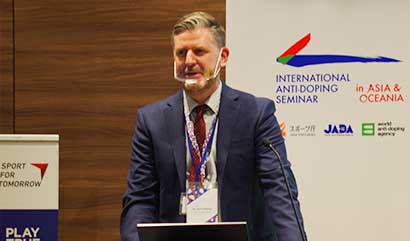
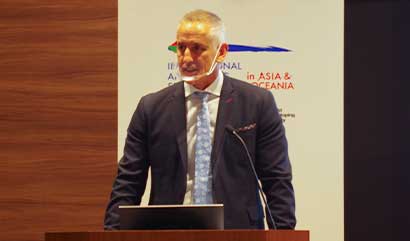
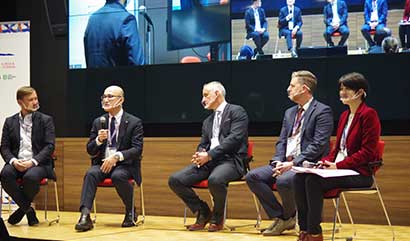
Mr. Kevin Haynes, WADA’s Associate Director, Compliance, Rules and Standard, shared some trends and analysis from the Code Compliance Questionnaire (CCQ) as well as guidance for better practice for Anti-Doping Organizations (ADOs).
He congratulated the Asia region on their investment in Education as world-leaders. As CCQ is upcoming, Tier 3 and 4 NADOs received some food for thought and some actions for considerations.
Mr. Tim Rickets analyzed non-conformities in Testing from the CCQ. He illustrated the details of each section outlining the critical elements, and how WADA assesses each of these. The major changes in the 2023 International Standard for Testing & Investigations (ISTI), including the introduction of the Dried Blood Spot (DBS) as an optional testing method, were highlighted.
Mr. Asakawa, JADA CEO, showed the structure of JADA and outlined its institutional and operational independence, focusing on the independence of the hearing panel in Japan, in particular.
Mr. Martin Holmlund Lauesen, Director of International Relations and Medical, of Anti-Doping Norway (ADNO), reflected on the process of answering CCQs and how ADNO dealt with the corrective actions. His message on “Don’t get too frustrated about the CCQ” and “ensuring the preparations as a team” became the strongest message for the participants.
PM
Hybrid
Reuniting the Clean Sport Community for the Future:
All be the PLAY TRUE Creator
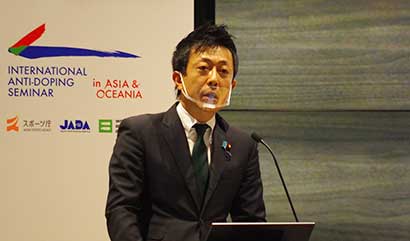
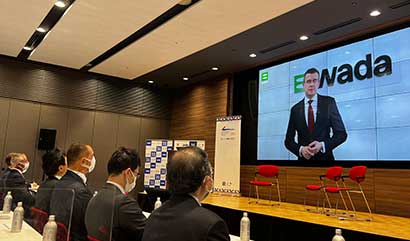
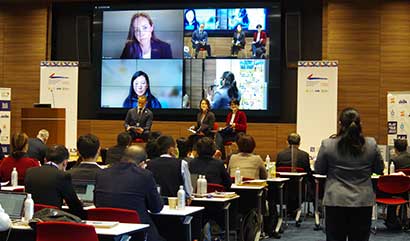
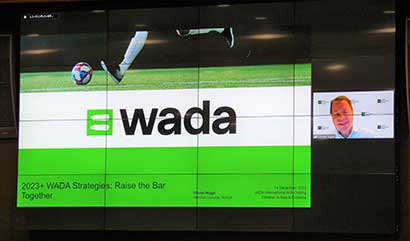
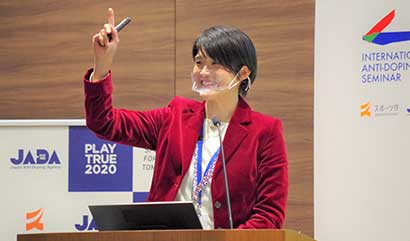
WADA President Witold Bańka gave the keynote address by saying: “I want to thank the Japan Sports Agency and JADA for running this seminar in partnership with WADA. It is a great opportunity to listen to one another, strengthen existing connections, build new relationships and reflect on our role as leaders of the anti-doping movement.” He stressed the importance of such partnerships like with JADA for building the capacity of the clean sport community; as well as Education, from playground to podium, as the “single solution” against doping.
At the Athlete Cross Talk, the panelists shared their experiences, lessons learnt and take-away messages as role model athletes who work for their respective ADOs. All athletes had someone inspire them to ‘play true’. Dr. Murofushi Koji explained how his father – also an Olympian – influenced him to be truthful to any commitments he has made. Ms Portia Bing stressed how the athletes themselves and their support personnel can make “anti-doping a safe workplace”.
Now that WADA’s Athlete Council is to begin, Ms YangYang talked us through the much-anticipated athlete’s engagement via WADA’s governance reform. All the panelists reminded the practitioners for clean sport that athletes are passionate about sport that is clean and true. The panelists as the role model athletes, then recommended ways how ADOs can be resilient, innovative and creative to reach the athletes with passion, even though they may face practical difficulties, in achieving shared goals.
Mr. Olivier Niggli, Director General, WADA, presented a wide range of WADA Governance Reforms, which will be starting in 2023 after six years of consultation. WADA is working with stakeholders like NADOs/RADOs, IFs, ITA and iNADO in order to increase WADA’s capacity, for which stronger collaboration is a must. Fostering meaningful athlete engagement is also at the core of reform and the 2025 World Conference on Doping in Sport in Busan will be one of the opportunities to discuss the shared momentum.
Dr. Yamamoto Yaya, WADA Education Committee member, shared the outcomes from the Global Education Conference held in Sydney, September 2022. Echoing Mr. Bańka’s stressed point about the needs of “re-balancing the system between catch-and-punish and prevent-and-support”, Dr. Yamamoto reemphasized that “all athletes start sport clean” and the significance of ISE’s principle, “Educate before testing” and “Educate before competitions”. The ISE guides ADOs to structurally approach education programmes to ensure the athletes stay clean throughout their careers. She highlighted how ADOs can benefit by learning from each other to find regional and local solutions.
AM
TOKYO
Ensuring a Clean Sport Environment for All: Sharing CCQ experiences for Quality Practices and Improve Together

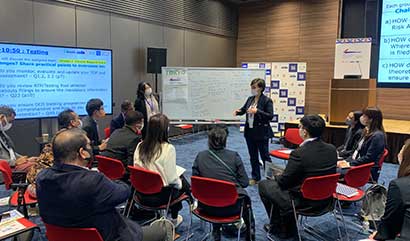
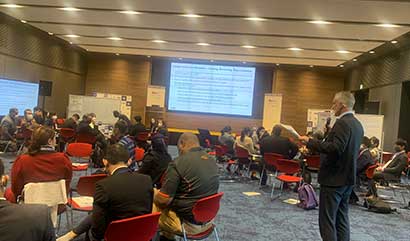
Workshop A: Testing
After sharing the further analysis of the CCQ on Testing by Mr. Tim Ricketts, Mr. Iizuka Nobuyuki, JADA Testing team, shared how JADA dealt with some CCQ questions, particularly on the DCO recruitment and training. Mr. Gobinathan Nair, SEARADO Director General, highlighted some regional learning on testing and also shared the regional challenges, like changing mindsets and finding the right people for the right job.Each group discussed one of the topics below:
| 1) | How do you monitor, evaluate and update your TDP and Risk Assessment? | |
| 2) | How do you review RTP/Testing Pool athletes’ Whereabouts Filings to ensure the mandatory information is filed? | |
| 3) | How do you ensure DCO training programmes are theoretically comprehensive, and how do you monitor and ensure their retention? |
Workshop B: Education
Building on the trends in Education from the CCQ, Dr. Yaya Yamamoto, Director of Education from JADA, explained how the streamlined national education framework intends to ensure ‘educating from playground to podium’. She stressed how each NADO/RADO can work with the national stakeholders, through identifying the education target groups, to share responsibilities for a clean sport environment. Dr. Maira Bakasheva, RADOCA Chair, shared how they worked with JADA on their members’ preparations for developing Education Plan.By recapping the minimum requirement set in ISE, the participants discussed how they can go beyond the minimum, aiming for better on the following points:
| 1) | How did you identify the Education Pool and how did you set the learning objectives? | |
| 2) | How do you train the Educators? What does (should) Educator training look like (including setting their competencies)? | |
| 3) | How do you ensure the ISE principle on “athlete’s first experience with anti-doping” can be met? |
PM
Hybrid
Ensuring a Clean Sport Environment for All: Compliance with the 2021 World Anti-Doping Code and International Standards
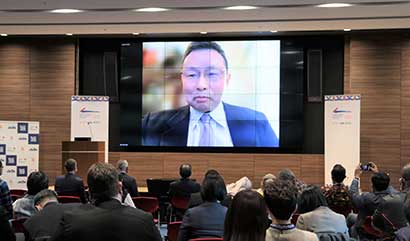
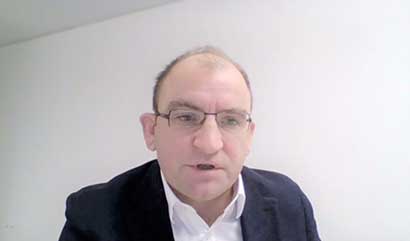
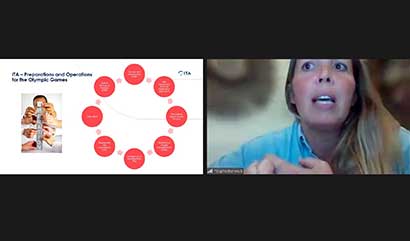
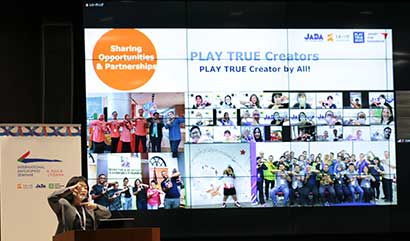
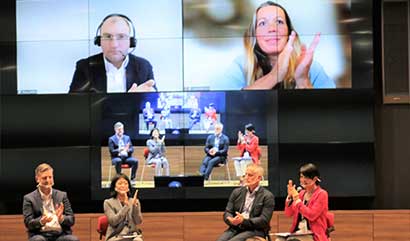
By illustrating the seven-years of the CCQ as “what we know” and “what we don’t know”, Mr. Kevin Haynes outlined WADA’s future perspectives with the compliance monitoring programme, including an analysis of causal links between, and complexities of, corrective actions and the possible use of data analytics from monitoring and regular review of key critical areas. “Compliance Maturity” is the key term for all ADOs – compliance becomes business as usual; structures and processes are embedded, non-conformities are reduced even further through self-assessment and self-correction.
Mr. Ross Wenzel, WADA General Counsel, shared key cases and issues under the 2021 Code. As per the Code, in results management cases with non-specified substances, an athlete’s ‘intent’ must be established, meaning their conduct might constitute or result in an anti-doping rule violation and be construed that they manifestly disregarded that risk, even in supplement cases. Mr. Wenzel also illustrated that over the years, the Code has increased flexibility in eligibility under specific circumstances, both for increase and reduction. It was highlighted that learning from cases could help ADOs to improve their anti-doping programme more effectively.
Ms. Sophie Berwick of ITA shared the plans for anti-doping programmes in the lead up to, and at, the Paris 2024 Olympics. She expressed the importance of continuous education and sending values messages, like from the example of PLAY TRUE 2020; and how JADA worked for the Tokyo2020 Games. Ms. Berwick emphasized that each stakeholder needs to work together and optimize the resources for collectively ensuring a clean Games.
The continuous ‘legacy-living’ project through PLAY TRUE 2020 was presented by Ms. Hori Sayaka of JADA. To achieve a sustainable sporting future, children and athletes of the world have shared their meaning of sporting values, which came together as “ SPORT & ART”. This tangible legacy project has continued even after the Tokyo2020 Games. Ms. Hori shared some examples of how JADA works continuously with Asia-Oceania colleagues through education programmes.
SEARADO x JADA Joint Workshop:
“Code Compliance for Better Practices:
Reunited to Raise the Bar Together”
